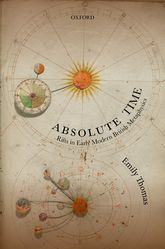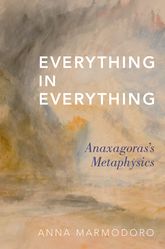History of Philosophy
History of philosophy is a concern of most staff in the Durham Department, and their interests range from Ancient Greek philosophy to the philosophy of the 20th century, taking in medieval philosophy, rationalism, and empiricism. Figures whose work we research include Aristotle, Hume, Kant, Wittgenstein and Anscombe. Historians of philosophy affirm a close relation between philosophy and its history, holding that the study of the history of philosophy is itself part of philosophy – in contrast to the study of the history of science, which is not part of science. As philosopher Wilfrid Sellars commented, "The history of philosophy is the lingua franca which makes communication between philosophers, at least of different points of view, possible. Philosophy without the history of philosophy, if not empty or blind, is at least dumb".
It facilitates communication in the same way that knowledge of standards is the lingua franca of jazz improvisation. In doing history of philosophy, one is doing philosophy itself, understanding it more deeply through investigating the historical origins of problems discussed today. To say this, is to endorse a humanistic as opposed to scientistic conception of philosophy. Only the former can properly acknowledge the philosophical classics, which are a continuing source of philosophical enrichment. Philosophy is here aligned with the humanities – theology, politics, the arts, history, literary studies. Concern with its own history is implicit in philosophical practice as far back as Plato and Aristotle, who tried to overcome – or at least come to terms with – the arguments of their predecessors. That is still the concern of Philosophy today.
History of Philosophy Research Group Books
Below are a selection of publications from our academic staff in the History of Philosophy Research Group:
Metaphysical Animals: How Four Women Brought Philosophy Back to Life
 by Dr Clare Mac Cumhaill and Dr Rachael Wiseman
by Dr Clare Mac Cumhaill and Dr Rachael Wiseman
2022, Chatto & Windus, 416pp
ISBN: 9781784743284
Iris Murdoch, Mary Midgley, Philippa Foot and Elizabeth Anscombe were philosophy students at Oxford during the Second World War when most male undergraduates (and many tutors) were conscripted. Taught by refugee scholars, women and conscientious objectors, the four friends developed a philosophy that could respond to the war's darkest revelations.
How, they asked, do we find our way through the devastation of what we have created? Not even the great thinkers of the past or the logical innovators and Existentialists of the early twentieth century could make sense of this new human reality. So, in search of an answer, the four friends set out to bring philosophy back to life.
Written with expertise and flair, Metaphysical Animals is a vivid blend of philosophy and recovered history - bringing back the women who shared ideas, as well as sofas, shoes and even lovers. Clare Mac Cumhaill and Rachael Wiseman show how from the disorder and despair of the war, four brilliant friends reinvigorated philosophy and created a way of ethical thinking that remains with us today.
Absolute Time: Rifts in Early Modern British Metaphysics
 by Dr Emily Thomas
by Dr Emily Thomas
2018, Oxford University Press, 256pp
ISBN: 9780198807933
What is time? This is one of the most fundamental questions we can ask. Traditionally, the answer was that time is a product of the human mind, or of the motion of celestial bodies. In the mid-seventeenth century, a new kind of answer emerged: time or eternal duration is 'absolute', in the sense that it is independent of human minds and material bodies.
Emily Thomas explores the development of absolute time or eternal duration during one of Britain's richest and most creative metaphysical periods, from the 1640s to the 1730s. She introduces an interconnected set of main characters - Henry More, Walter Charleton, Isaac Barrow, Isaac Newton, John Locke, Samuel Clarke, and John Jackson - alongside a large and varied supporting cast, whose metaphysical views are all read in their historical context and given a place in the seventeenth- and eighteenth-century development of thought about time.
In addition to interpreting the metaphysics of these thinkers, Absolute Time advances two general, developmental theses. First, the complexity of positions on time (and space) defended in early modern thought is hugely under-appreciated. Second, distinct kinds of absolutism emerged in British philosophy, helping us to understand why some absolutists considered time to be barely real, whilst others identified it with the most real being of all: God.
Everything in Everything: Anaxagoras's Metaphysics
 by Professor Anna Marmodoro
by Professor Anna Marmodoro
2017, Oxford University Press, 226pp
ISBN: 9780190611972
Anaxagoras of Clazomenae (Vth century BCE) is best known in the history of philosophy for his stance that there is a share of everything in everything. He puts forward this theory of extreme mixture as a solution to the problem of change that he and his contemporaries inherited from Parmenides - that what is cannot come from what is not (and vice versa). Yet, for ancient and modern scholars alike, the metaphysical significance of Anaxagoras's position has proven challenging to understand. In Everything in Everything, Anna Marmodoro offers a fresh interpretation of Anaxagoras's theory of mixture, arguing for its soundness and also relevance to contemporary debates in metaphysics. For Anaxagoras the fundamental elements of reality are the opposites (hot, cold, wet, dry, etc.), which Marmodoro argues are instances of physical causal powers. The unchanging opposites compose mereologically, forming (phenomenologically) emergent wholes. Everything in the universe (except nous) derives from the opposites. Marmodoro shows that this is made possible in Anaxagoras system by the omni-presence and hence com-presence of the opposites in the universe, which is in turn facilitated by the fact that for Anaxagoras the opposites exist as unlimitedly divided. She argues that Anaxagoras is the first ante litteram 'gunk lover' in the history of metaphysics. He also has a unique conception of (non-material) gunk and a unique power ontology, which Marmodoro refers to as 'power gunk'. Marmodoro investigates the nature of power gunk and the explanatory utility of the concept for Anaxagoras, for his theory of extreme mixture; and finally contrasts it with the only other metaphysical system in antiquity positing (material) gunk, that of the Stoics.
Staff Research Interests
| Research Group Staff | Research Interests |
|---|---|
| Dr Jeremy Dunham |
|
| Dr Clare Mac Cumhaill |
|
| Professor Anna Marmodoro |
|
| Dr Joe Saunders |
|
| Dr Emily Thomas |
|
| Dr Sara Uckelman |
|


/prod01/prodbucket01/media/durham-university/departments-/philosophy/16115.jpg)